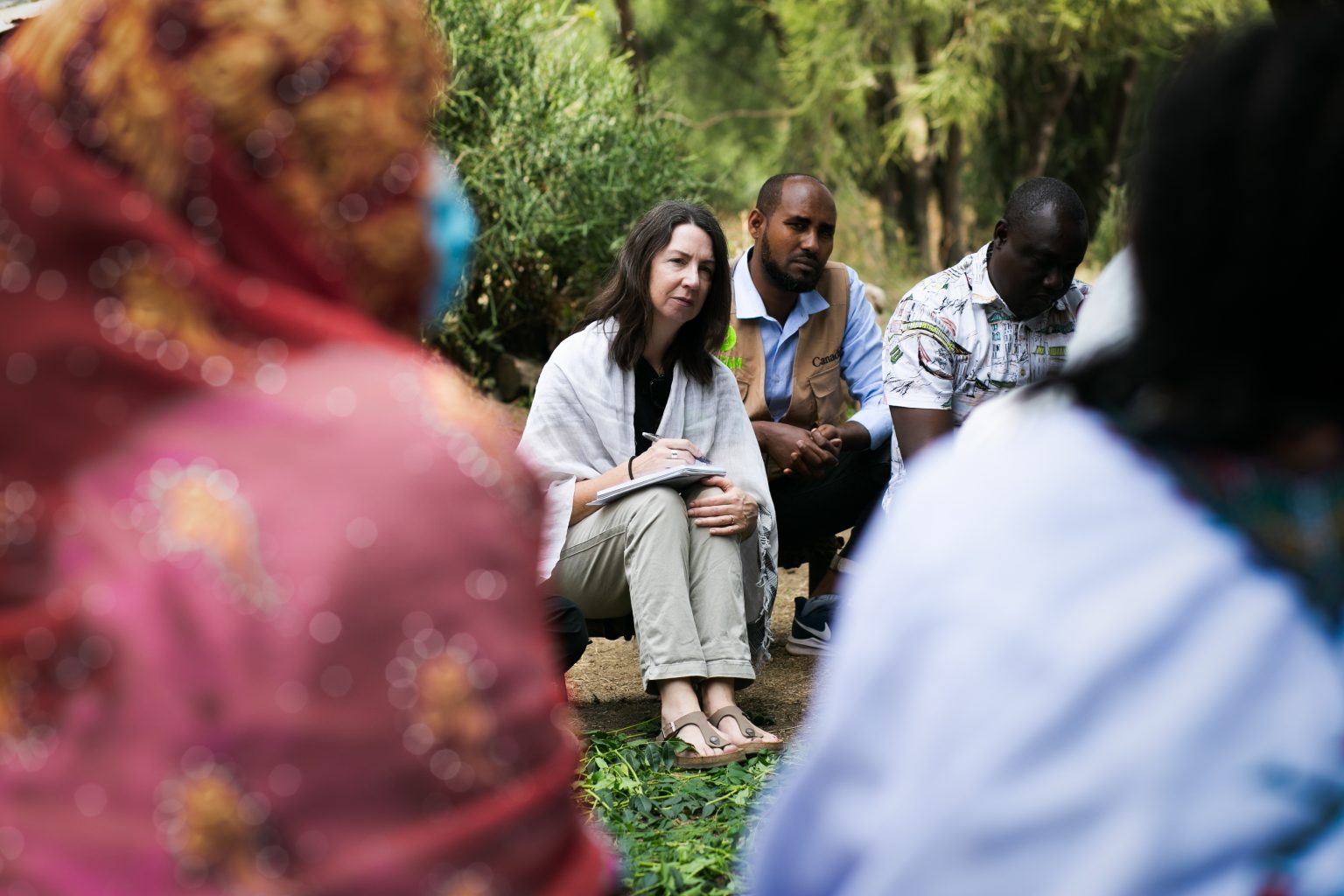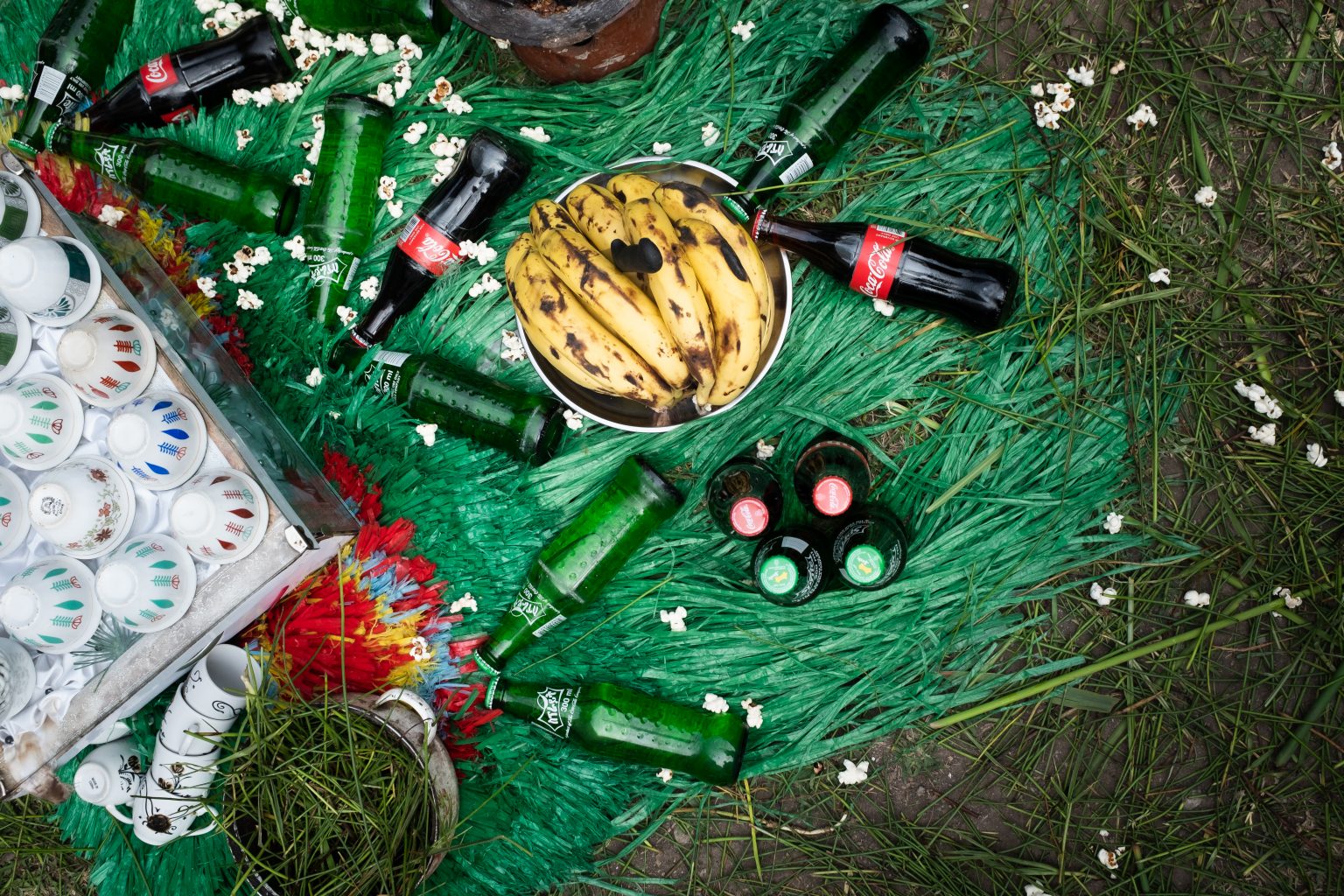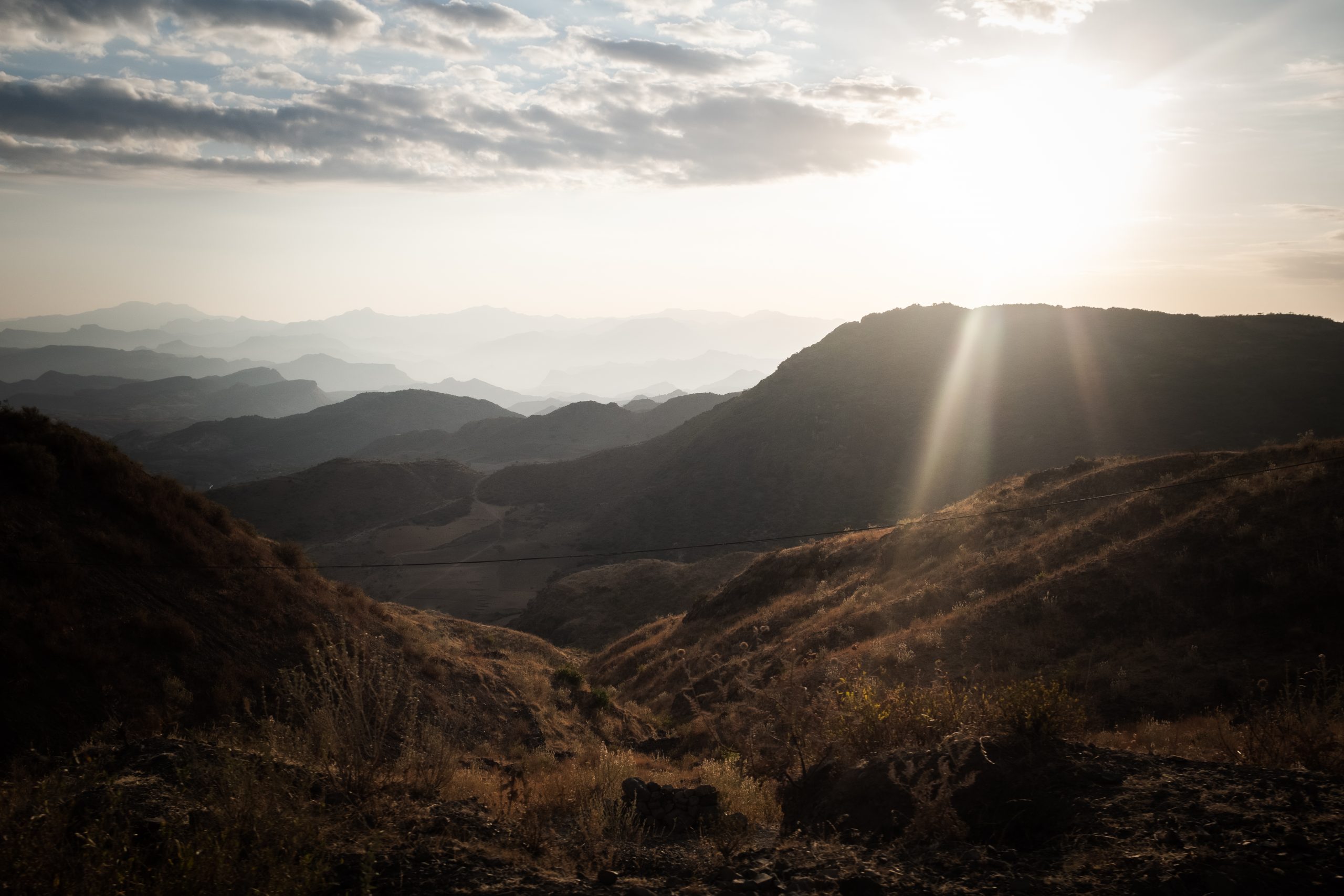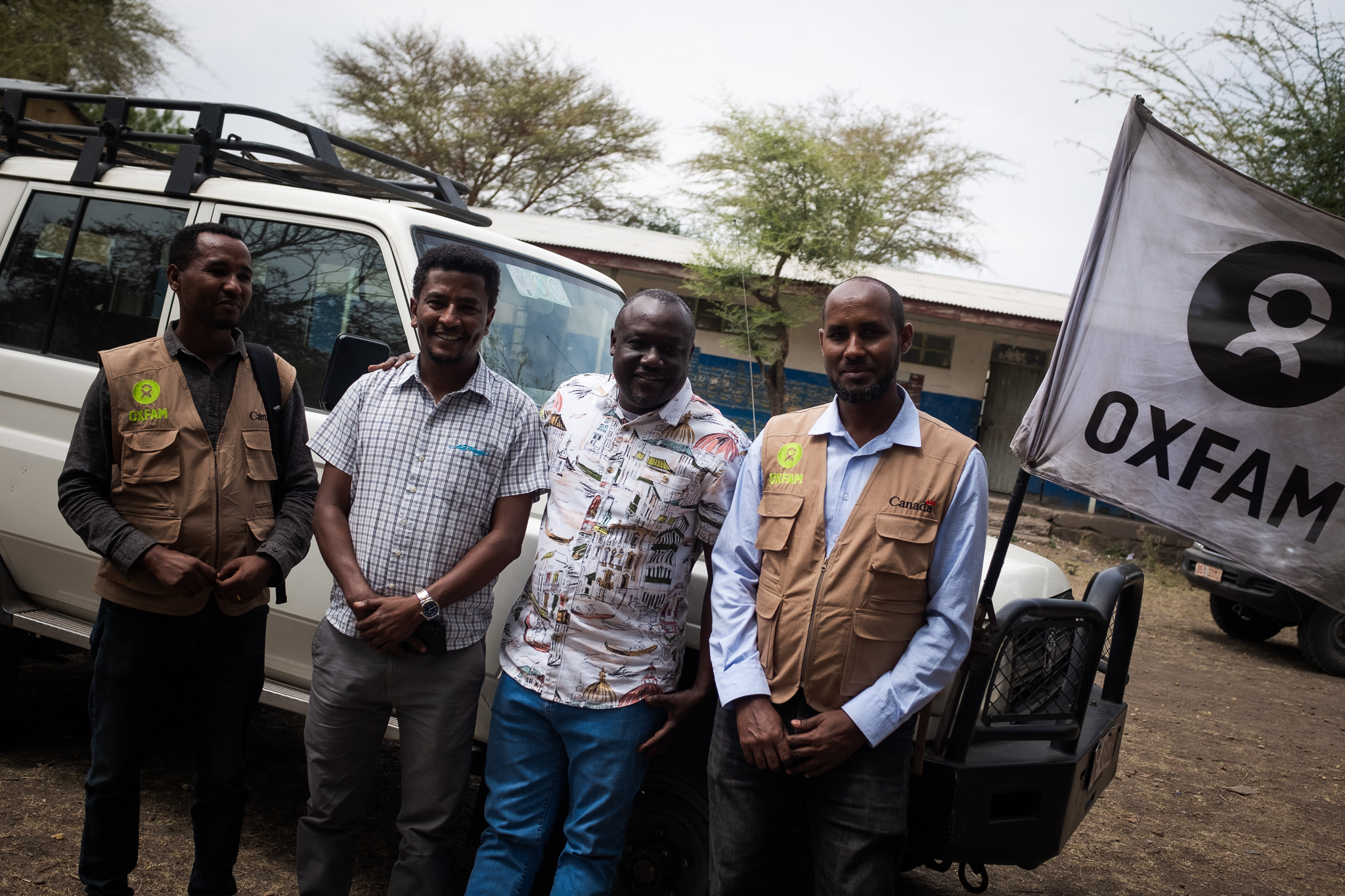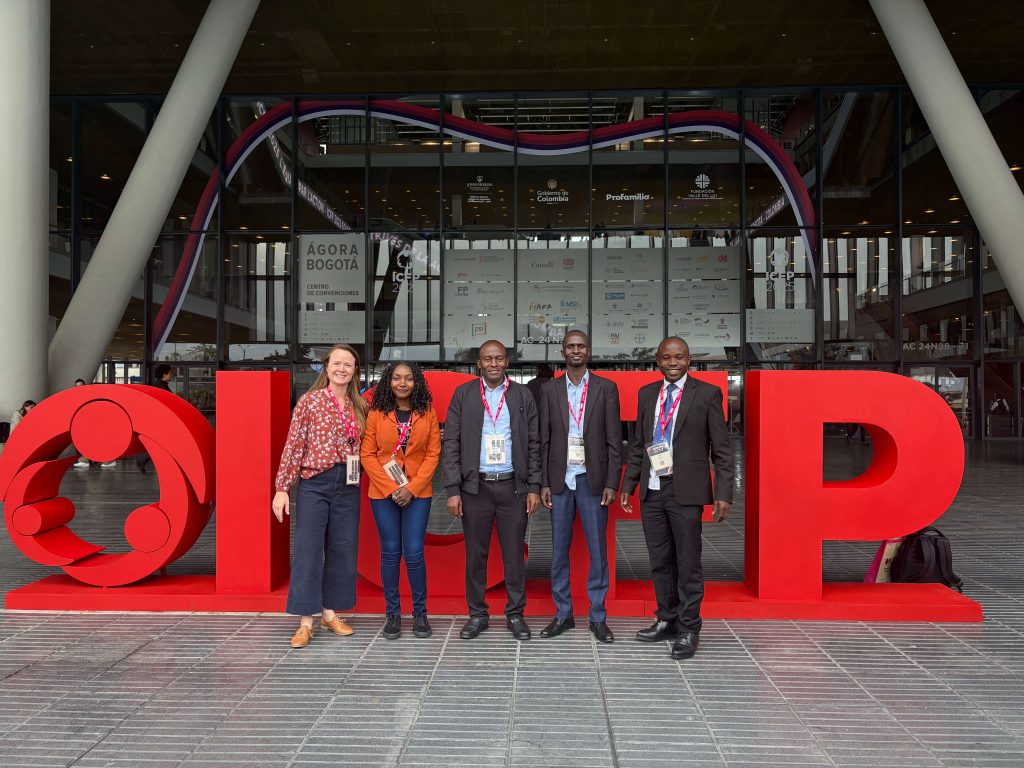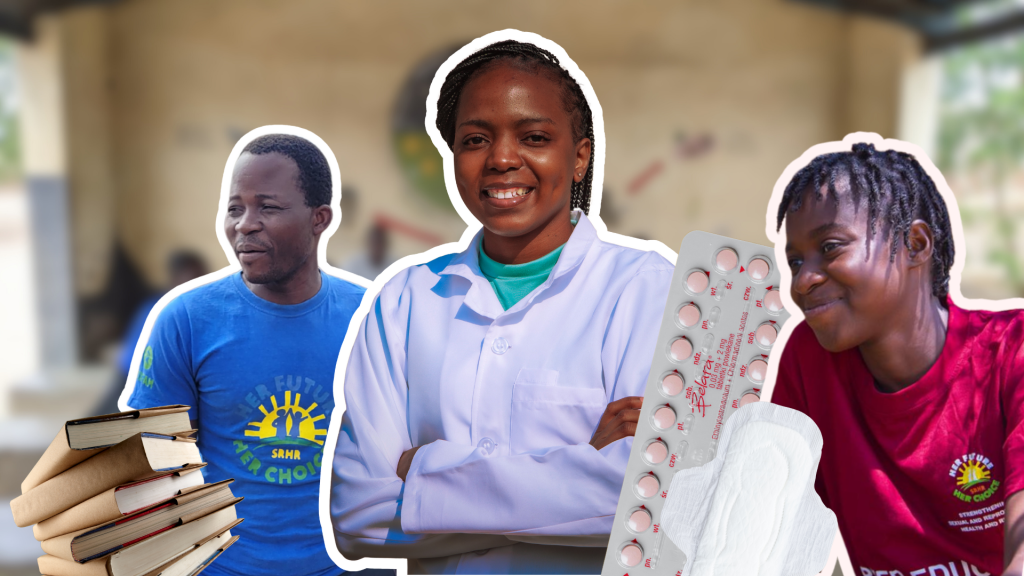A Visit to Northern Ethiopia Shows Us Why Donations Matter
It’s difficult to imagine, when driving along these wide open roads on a long journey that takes us from arid pastures to lush hillsides, then again more dust and desert – that the peacefulness we’re experiencing was not always.
As I travel with colleagues from Oxfam Canada, Oxfam Ethiopia and partners Pathfinder and WE-Action – I’m learning more about the region and life changing activities happening at two humanitarian projects generously funded by our donors.
Northern Ethiopia is emerging from a brutal two-year conflict which led to massive displacement and destruction of local livelihoods. A permanent Cessation of Hostilities was signed in November 2022 and while the fighting has stopped, humanitarian needs in the three northern regions of Ethiopia: Tigray, Afar, and Amhara, continue to be massive.
Tremendous Loss
The area that we’re now visiting in Amhara Region was affected by active fighting during the conflict. Communities were looted of their goods and supplies, medical, agriculture and personal assets. Homes, facilities and farmland destroyed. Women suffered abuse and violence, many lost their husbands and now are heads of household taking on all the extra responsibilities. Most people fled the area to escape, living in displacement camps far from any town.
Since the peace agreement, people are returning but many are still traumatized. Their aim now is to heal, recoup their losses and rebuild their lives. The primary way of life and income is farming and beekeeping. But several farming seasons have gone by without production and a lot of the beehives were destroyed. Yet when we visit homes, meet people at the town hall and stop for local coffee – we hear hope and resilience. “We come from a supportive culture,” our host tells us. “We have to support each other to improve our lives.”
As we drive from village to village, the buildings look mostly intact. The only major destruction we see is a bridge, at one time completely destroyed and now rebuilt, and our hotel in the process of being repaired. We learn that this hotel, which has a main building and small quaint cottages, was occupied by soldiers not long ago.
My colleague, Myke, reminds me that it’s not always what we see on the outside that counts. The destruction here is on the inside – empty homes and broken hearts.
Emergency Response and Recovery
It was Thursday and Oxfam’s weekly women’s dignity and hygiene kit distribution was taking place at the local school. More than 200 kits were being distributed and this is my first time seeing Oxfam’s humanitarian work in action.
These kits are especially designed for women and their specific needs during emergency crises, when access to supplies is difficult and the local need is great. Each kit contains 1 pack of sanitary pads, 2 underwear, 2 bars soap, 6 laundry soap tablets, and an infant sleeper all contained in a useful 20L bucket for carrying water and washing – water borne disease is a concern right now.
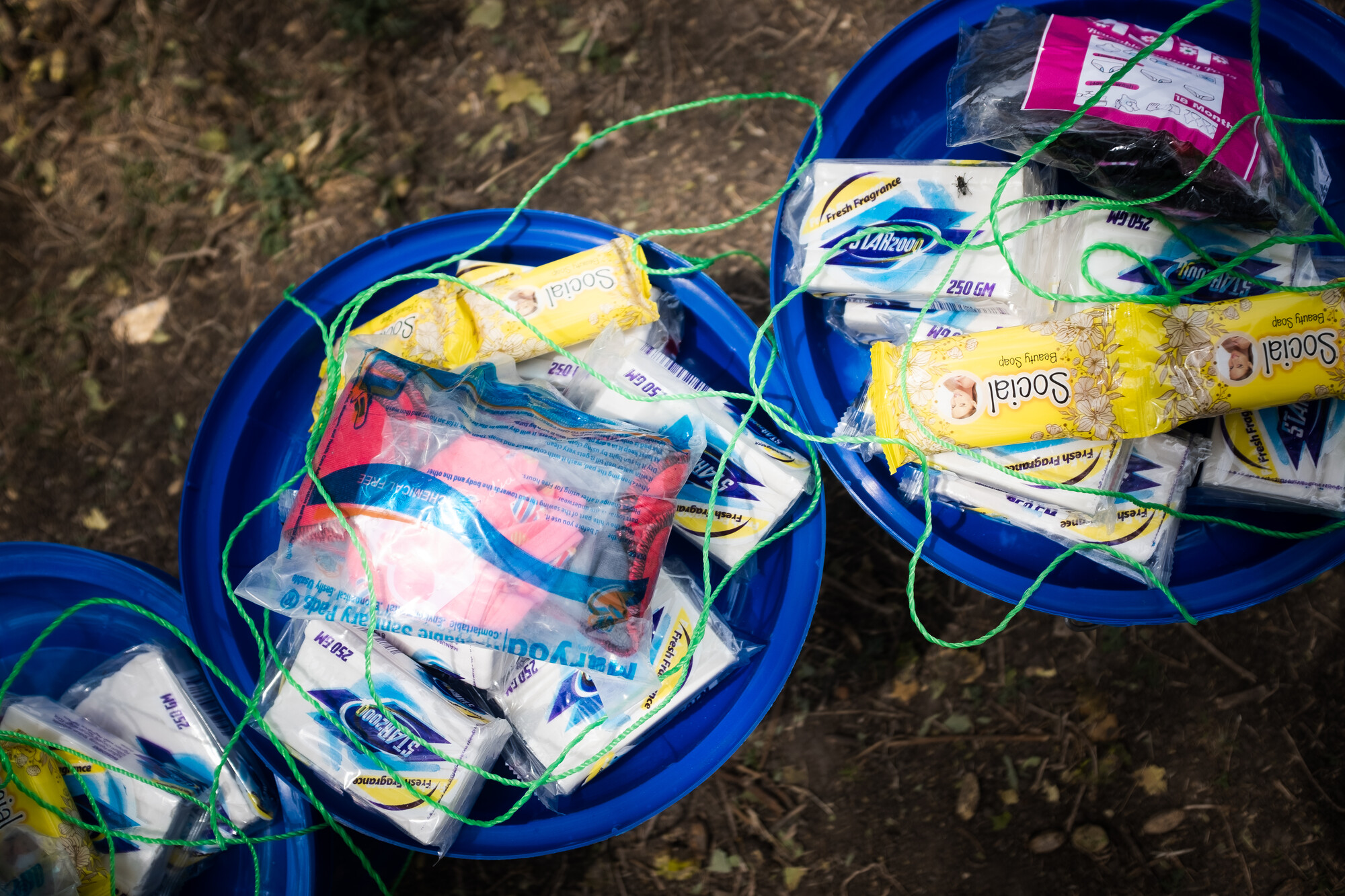
At a different location and different day of the week, Oxfam distributes the family emergency kit that includes similar sanitation items but also blankets, flashlights and other supplies.
Emergency response and supply distribution is critical to support immediate humanitarian needs in a crisis like this, and ensuring the unique needs of women are met is central to how Oxfam designs our response. Cash and/or voucher distribution is also a key part, so people can make their own decisions about what they need.
Building Back Stronger
In this area of the Amhara region, emergency response is happening alongside long-term development to help the towns rebuild for the long term. When we visited the town of Raya Kobo, we were greeted by an energetic group of young women who are volunteering in their community. Helping the elderly, disabled and youth, spreading awareness about the project services is their main focus.
With the support of Oxfam and partner WE-Action, the volunteers are leading weekly women’s discussion groups focusing on supporting trauma caused by the recent conflict in the region.
“We know the community and its challenges; we are part of the community. And to rebuild the community again, we need strong women leaders,” says Lemelem, “Conversations and discussions are the solution. It helps us deal with the pain of war. Talking is the solution.”
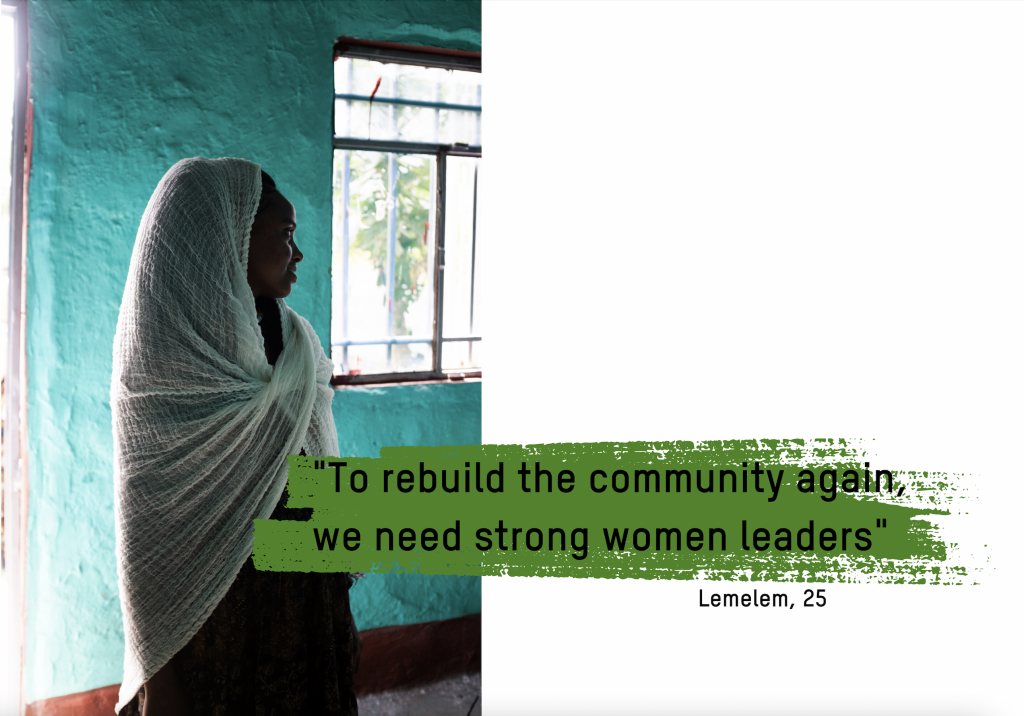
We then drove to another village where a women’s discussion group was taking place. Just like every stop we’ve had on our journey – the village of women burn fragrant leaves and offer their baked bread, popcorn and delicious coffee. It’s lovely and heartwarming. At this stop we’re treated to a traditional meal of injera and shiro. We listen intently.
This women’s group in particular has suffered great loss. They tell us about unforgettable heavy artillery firing, experiencing violence and losing loved ones. With the destruction of homes and medical centres, many people died due to lack of health services and medications. Again, seeds, grain, tools, cattle – all need to be restocked and resources to do that are slim.
We learned that WE-Action partner had implemented a major cash savings and loan project in this area where many women’s groups got started. The project was successful but closed due to the conflict. As a result, a lot of the women who had participated in those groups were impacted. Their hard work to build independence and economic stability was becoming undone. But thanks to the project, they had gained important advocacy skills from the initial women’s groups and went to WE-Action’s offices in the city of Addis. They told WE-Action that they needed help to recover and get back on track. Now there are 2,800 women participating across 30 areas. They have saved over 3.4 million birr and have started revolving the money for business loans, doubling their capitals and being strong role models for their children.
This is at the heart of what Oxfam and our partners do together – we help build capacity, listen and respond. The partners already have a local presence and good understanding of the local context, they understand the people and know the environment. When projects come to life from community advocacy and local expertise, it is most rewarding for everyone. Participating in this project visit made Oxfam’s partner approach clearer and more evident to me.
Fehr, 35, is a member of the Women’s Self-Help Group in Raya Kobo, Amhara, northern Ethiopia. Photo: Caroline Leal/Oxfam
The Oxfam Difference
Someone told me it’s like supply and demand. Community groups self-organize and connect with a local partner like WE-Action, who makes connections to higher associations like credit unions, rural savings groups or health centres. Oxfam’s role is to provide capacity and funding from donors in Canada and around the world, working in collaboration and partnership. I found this all very compelling and concrete.
After more than seven years working in communications and fundraising at Oxfam, the experience of this trip really opened my eyes. To witness the resilience of people living in some of the most challenging contexts, hearing that charity is not what they want or need – just a little support to get through tough times and build back stronger.
As I return back home to Canada, I’m more inspired than ever to steward Oxfam’s mission and share the impact of our work with colleagues and donors.
Oxfam’s approach is innovative: we work with local partners to provide urgent humanitarian relief to help vulnerable people in crisis. And we do that alongside long-term development activities and advocacy for change. This is the key to unlock the injustice of poverty.
Jennifer Alldred is a manager at Oxfam Canada's Fund Development department.
